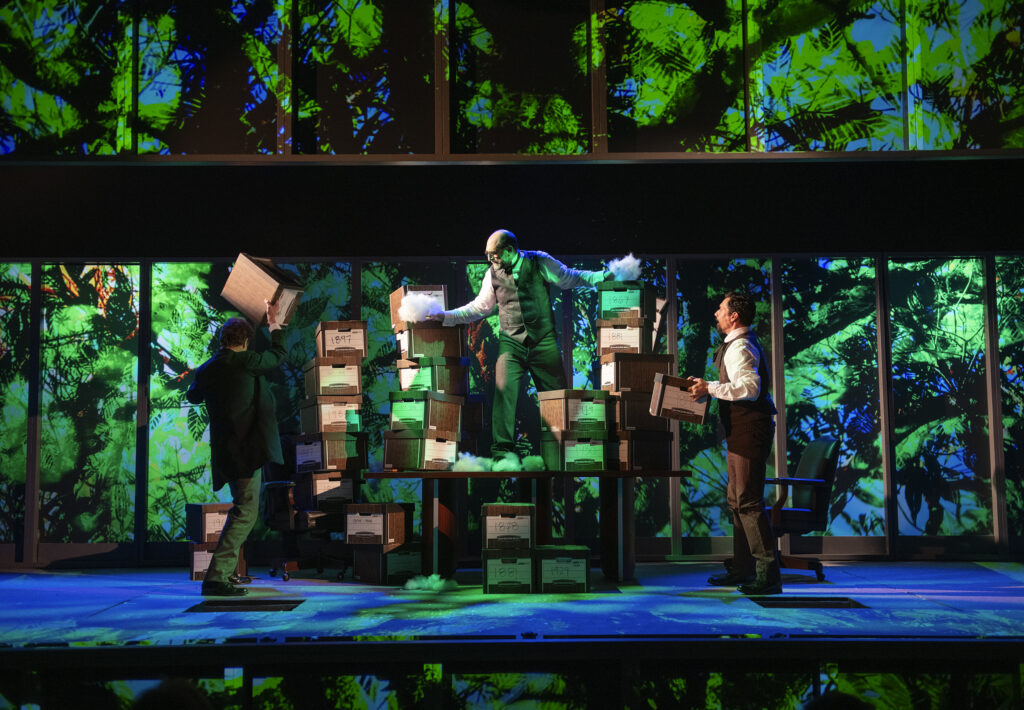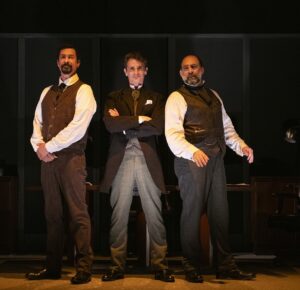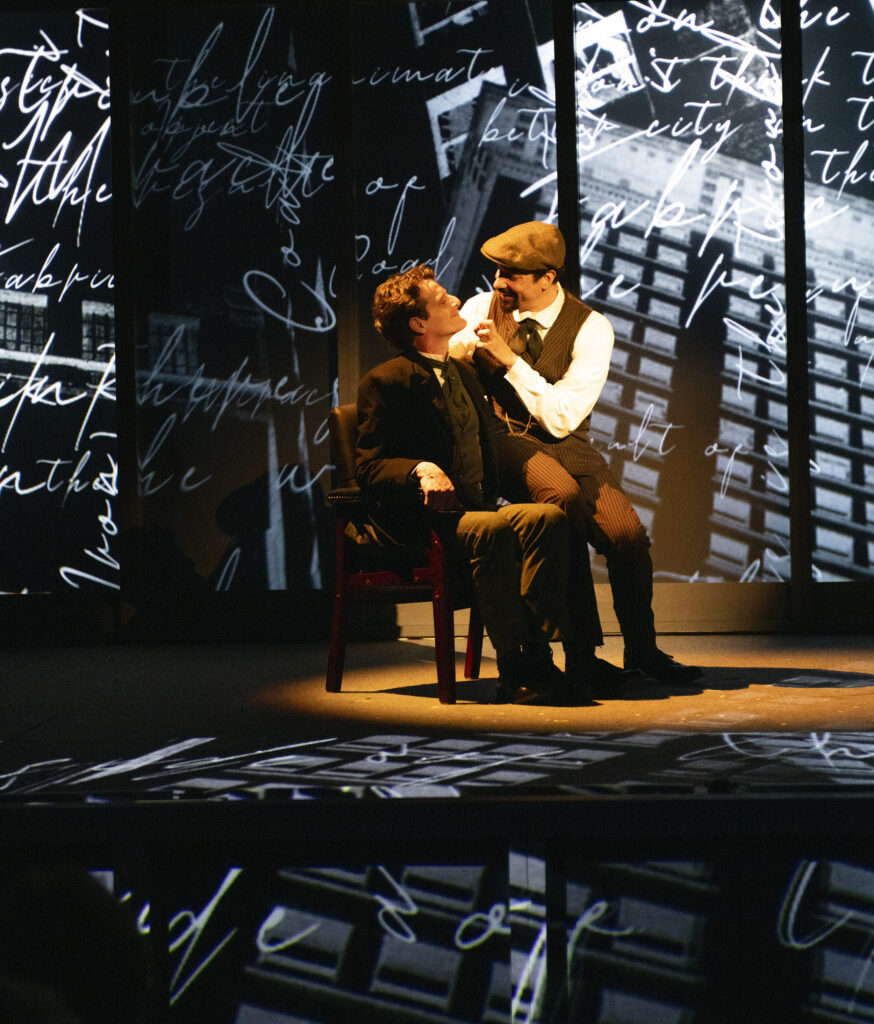
Photos by Magnus Stark
By Oline H. Cogdill
The Lehman Trilogy, now enjoying a forceful production through April 21 at GableStage, combines a solid story about generations of a family seen through the immigrant experience with a precise look at the American Dream seen through the lens of capitalism and the beginnings of the stock market.
It is a staggering play deftly directed by Bari Newport that offers a double-edged story showing the triumph of three Bavarian brothers, newly arrived in America during 1844, in relation to capitalism. The plot tracks how their successes buoyed their descendants’ ambitions but that also leads to the eventual financial failures in 2008. Over the course of three hours with two 15-minute intermissions, The Lehman Trilogy also examines the changes in America over a century and a half, as well as antisemitism and how a germ of a vision can grow.
The Lehman Trilogy opens in 2008 where an empty, messy desk sits signifying the collapse of what had become an influential investment firm. A janitor (Sean Deam) is left to clean up.

Brandon Morris, Mark H. Dold and James Zanelli Photo by Magnus Stark
The play penned by Stefano Massini and Ben Power then moves back to 1844 as Henry Lehmann (James Zanelli) has just arrived in America from Bavaria. In a few minutes, he will be renamed Henry Lehman by a port official who can’t be bothered to know his real name. He will open a store selling fabric and eventually clothing in Montgomery, Alabama, and bring over his brothers Emanuel (Brandon Morris) and Mayer (Mark H. Dold).
The Lehman Brothers store does well in the local economy but they want to expand. The specter of slavery hovers, as economy collapses after the Civil War. “Everything that was built here was built on a crime,” says a character. “The roots run so deep you cannot see them, but the ground beneath our feet is poisoned.”
But the Lehman brothers, each of whom has a vision, find a way out. They start to buy cotton from the plantations, then sell it at a higher price. As their fortunes grow, they diversify their business more and more, eventually leading them to New York City and this new way of business called the stock market.
Subsequent Lehman generations across the decades depicted on the stage will grow their business more. Their profits will increase but the brothers are reckless. They will barely survive the 1929 crash. Several family members will commit suicide; others emerge stronger with new ideas. But in the end, the family empire will not be able to survive the crash of 2008.
The Lehman Trilogy is an ensemble piece. Zanelli, Morris and Dold play every character across the years —wives, children, townspeople, business partners and more. Each actor is at the top of his game, making split second character changes, perhaps donning a hat or a scarf to create a different person. It is especially good to have Morris back on a South Florida stage. This former Floridian has been living in New York City for some years, but long-time audiences will fondly recall his local stage credits at GableStage and Florida Stage. Only Deam, who is only on stage briefly at the beginning, plays one role—and he is fine.
Despite its length, The Lehman Trilogy moves fairly brisk, thanks to Producing Artistic Director Newport’s direction and the three actors’ total investment in their roles.
The set is mostly grey panels, strikingly designed by Frank J. Oliva, enhanced by Jamie Godwin’s effective projections to show the passage of time and the Lehmans’ new signs as their businesses change. Eventually these panels will give way to upscale offices. But the panels are closed on the sides for several scenes. That keeps the action narrowly focused in the center, but they open up as the Lehmans’ business changes and grows. This moving of the panels works as an interesting metaphor for the family opening up their business to new projects, but it also obscured the sight lines for those in the extreme side seats.
Camilla Haith’s costumes, Sean McGinley’s sound and Tony Galaska’s lighting enhance the production.
The Lehman Trilogy runs through April 21 at GableStage, in the Biltmore Hotel, 1200 Anastasia Ave., Coral Gables. Call 305-445-1119 or visit gablestage.org for tickets. Running time about three hours with two 15-minute intermissions. Performances are scheduled 7:30 p.m. Wednesdays through Saturday and Tuesdays April 2, 9 and 16; 2 p.m. Sundays. Tickets range from $35 to $75.










 A PaperStreet Web Design
A PaperStreet Web Design
